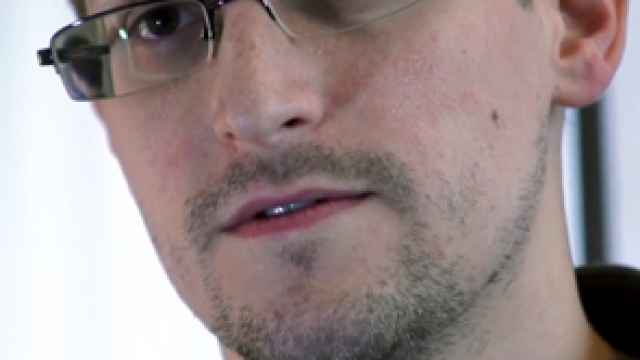Russia would consider granting asylum to the American who has exposed top-secret U.S. surveillance programs, if he were to ask for it, President Vladimir Putin's spokesman said.
Spokesman Dmitry Peskov stopped short of saying Moscow would accept Edward Snowden, but pro-Kremlin lawmakers spoke in favor of the idea, tapping into a lingering Cold War rivalry with the United States and a vein of anti-American sentiment Putin has often encouraged.
"Promising Snowden asylum, Moscow takes upon itself the defense of people persecuted for political reasons," Alexei Pushkov, chairman of the State Duma's International Affairs Committee, said Tuesday on Twitter.
"There will be hysteria in the United States. They recognize this as their right alone," he said.
 Edward Snowden
Edward Snowden
AP
Putin and other Russian officials have often accused the United States of hypocrisy, saying it tries to impose standards of human rights, freedom and democracy on other nations while falling far short of them itself.
"This is an ideological catastrophe for the United States," Pushkov said, referring to Snowden's leaks about National Security Agency surveillance programs.
Snowden, who provided the information for reports that revealed broad monitoring of phone call and Internet data by the NSA, fled to Hong Kong and has said he hopes that Iceland might grant him asylum.
Putin said the methods revealed by Snowden were widespread and were justified "in the circumstances of the struggle against international terrorism," but that they must be applied legally and not behind the public's back.
"In Russia, for instance, one cannot listen to a telephone conversation without the proper permission from a court," Putin told state-run English-language channel RT. He was not asked about the asylum issue.
Snowden is not known to have mentioned the possibility of asylum in Russia, where the government taps the phones of opposition members and keeps close tabs on social networks. But Peskov was quoted in Kommersant as saying Moscow was open to such an approach.
Asked by phone whether Russia would be inclined to grant a request from Snowden, Peskov said: "It is impossible [to say] now. No one has applied yet. If he says: I request [political asylum], then we will consider it."
Accused by the West of curtailing democracy and civil liberties more than 13 years in power, Putin has missed few chances to champion public figures who challenge Western governments, and to portray Washington as an overzealous global policeman.
In 2010, the Kremlin suggested Wikileaks founder Julian Assange should be nominated for a Nobel prize.
"By tapping telephones and conducting surveillance on the Internet, the U.S. security services have violated the laws of their own country. In this sense Snowden, like Assange, is a rights defender," member of parliament Pushkov tweeted.
A Message from The Moscow Times:
Dear readers,
We are facing unprecedented challenges. Russia's Prosecutor General's Office has designated The Moscow Times as an "undesirable" organization, criminalizing our work and putting our staff at risk of prosecution. This follows our earlier unjust labeling as a "foreign agent."
These actions are direct attempts to silence independent journalism in Russia. The authorities claim our work "discredits the decisions of the Russian leadership." We see things differently: we strive to provide accurate, unbiased reporting on Russia.
We, the journalists of The Moscow Times, refuse to be silenced. But to continue our work, we need your help.
Your support, no matter how small, makes a world of difference. If you can, please support us monthly starting from just $2. It's quick to set up, and every contribution makes a significant impact.
By supporting The Moscow Times, you're defending open, independent journalism in the face of repression. Thank you for standing with us.
Remind me later.

